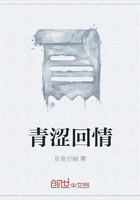Petersburg. The genuine bureaucrat has a wholesome dread of formal responsibility, and generally tries to avoid it by taking all matters out of the hands of his subordinates, and passing them on to the higher authorities. As soon, therefore, as affairs are caught up by the administrative machine they begin to ascend, and probably arrive some day at the cabinet of the minister. Thus the ministries are flooded with papers--many of the most trivial import--from all parts of the Empire; and the higher officials, even if they had the eyes of an Argus and the hands of a Briareus, could not possibly fulfil conscientiously the duties imposed on them. In reality the Russian administrators of the higher ranks recall neither Argus nor Briareus. They commonly show neither an extensive nor a profound knowledge of the country which they are supposed to govern, and seem always to have a fair amount of leisure time at their disposal.
Besides the unavoidable evils of excessive centralisation, Russia has had to suffer much from the jobbery, venality, and extortion of the officials. When Peter the Great one day proposed to hang every man who should steal as much as would buy a rope, his Procurator-
General frankly replied that if his Majesty put his project into execution there would be no officials left. "We all steal," added the worthy official; "the only difference is that some of us steal larger amounts and more openly than others." Since these words were spoken nearly two centuries have passed, and during all that time Russia has been steadily ****** progress, but until the accession of Alexander II. in 1855 little change took place in the moral character of the administration. Some people still living can remember the time when they could have repeated, without much exaggeration, the confession of Peter's Procurator-General.
To appreciate aright this ugly phenomenon we must distinguish two kinds of venality. On the one hand there was the habit of exacting what are vulgarly termed "tips" for services performed, and on the other there were the various kinds of positive dishonesty. Though it might not be always easy to draw a clear line between the two categories, the distinction was fully recognised in the moral consciousness of the time, and many an official who regularly received "sinless revenues" (bezgreshniye dokhodi), as the tips were sometimes called, would have been very indignant had he been stigmatised as a dishonest man. The practice was, in fact, universal, and could be, to a certain extent, justified by the smallness of the official salaries. In some departments there was a recognised tariff. The "brandy farmers," for example, who worked the State Monopoly for the manufacture and sale of alcoholic liquors, paid regularly a fixed sum to every official, from the Governor to the policeman, according to his rank. I knew of one case where an official, on receiving a larger sum than was customary, conscientiously handed back the change! The other and more heinous offences were by no means so common, but were still fearfully frequent. Many high officials and important dignitaries were known to receive large revenues, to which the term "sinless"
could not by any means be applied, and yet they retained their position, and were received in society with respectful deference.
The Sovereigns were well aware of the abuses, and strove more or less to root them out, but the success which attended their efforts does not give us a very exalted idea of the practical omnipotence of autocracy. In a centralised bureaucratic administration, in which each official is to a certain extent responsible for the sins of his subordinates, it is always extremely difficult to bring an official culprit to justice, for he is sure to be protected by his superiors; and when the superiors are themselves habitually guilty of malpractices, the culprit is quite safe from exposure and punishment. The Tsar, indeed, might do much towards exposing and punishing offenders if he could venture to call in public opinion to his assistance, but in reality he is very apt to become a party to the system of hushing up official delinquencies. He is himself the first official in the realm, and he knows that the abuse of power by a subordinate has a tendency to produce hostility towards the fountain of all official power. Frequent punishment of officials might, it is thought, diminish public respect for the Government, and undermine that social discipline which is necessary for the public tranquillity. It is therefore considered expedient to give to official delinquencies as little publicity as possible.
Besides this, strange as it may seem, a Government which rests on the arbitrary will of a single individual is, notwithstanding occasional outbursts of severity, much less systematically severe than authority founded on free public opinion. When delinquencies occur in very high places the Tsar is almost sure to display a leniency approaching to tenderness. If it be necessary to make a sacrifice to justice, the sacrificial operation is made as painless as may be, and illustrious scapegoats are not allowed to die of starvation in the wilderness--the wilderness being generally Paris or the Riviera. This fact may seem strange to those who are in the habit of associating autocracy with Neapolitan dungeons and the mines of Siberia, but it is not difficult to explain. No individual, even though he be the Autocrat of all the Russias, can so case himself in the armour of official dignity as to be completely proof against personal influences. The severity of autocrats is reserved for political offenders, against whom they naturally harbour a feeling of personal resentment. It is so much easier for us to be lenient and charitable towards a man who sins against public morality than towards one who sins against ourselves!















